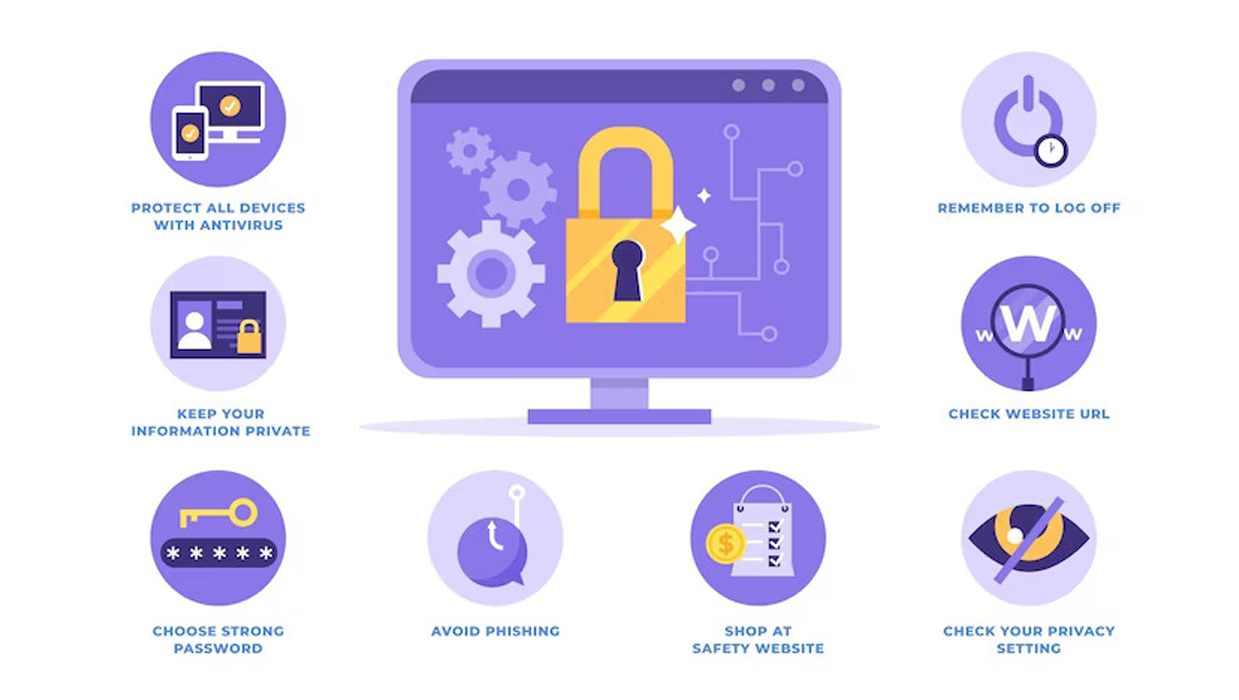The digital realm offers incredible opportunities for connection, learning, and entertainment, but it also presents a landscape riddled with potential dangers. Navigating this intricate web requires a proactive approach and a constant awareness of the risks involved. It’s crucial to understand that online safety isn’t just about avoiding viruses; it’s about protecting your personal information, your reputation, and your overall well-being. Therefore, knowing how can you stay safe in the online world is no longer optional but an essential skill for everyone. We’ll explore practical strategies and actionable steps to empower you to navigate the online world with confidence and security, ensuring you can enjoy its benefits without falling victim to its pitfalls. This exploration will detail how can you stay safe in the online world.
Understanding the Online Threat Landscape
The internet is a complex ecosystem, and understanding the types of threats you might encounter is the first step towards staying safe. These threats can range from relatively minor annoyances to serious crimes.
- Phishing: Deceptive attempts to obtain sensitive information like usernames, passwords, and credit card details by disguising as a trustworthy entity.
- Malware: Malicious software designed to damage or disable computer systems, steal data, or disrupt operations.
- Identity Theft: The fraudulent acquisition and use of a person’s private identifying information, usually for financial gain.
- Cyberbullying: Using electronic communication to bully a person, typically by sending messages of an intimidating or threatening nature.
- Online Scams: Deceptive schemes designed to trick individuals into providing money or personal information.
Practical Steps to Enhance Your Online Security
Now that we understand the threats, let’s delve into specific actions you can take to protect yourself.
Strong Passwords and Account Security
Your passwords are the first line of defense against unauthorized access to your accounts.
- Create strong, unique passwords: Use a combination of uppercase and lowercase letters, numbers, and symbols. Avoid using easily guessable information like your name or birthday.
- Use a password manager: These tools generate and store strong passwords securely, so you don’t have to remember them all.
- Enable two-factor authentication (2FA): This adds an extra layer of security by requiring a second verification method, such as a code sent to your phone.
- Regularly update your passwords: Change your passwords every few months, especially for sensitive accounts.
Safe Browsing Habits
Your browsing habits can significantly impact your online security. Be mindful of the websites you visit and the information you share.
- Be wary of suspicious links and emails: Don’t click on links from unknown senders or websites that look untrustworthy.
- Use a secure browser: Choose a browser with built-in security features and keep it updated.
- Enable browser privacy settings: Adjust your browser settings to block tracking cookies and limit the amount of data websites can collect about you.
- Use a VPN (Virtual Private Network): A VPN encrypts your internet traffic and masks your IP address, making it more difficult to track your online activity.
Protecting Your Personal Information
Your personal information is valuable, and it’s important to protect it from falling into the wrong hands. This is a key aspect of thinking about how can you stay safe in the online world.
- Be careful what you share online: Avoid posting sensitive information like your address, phone number, or financial details on social media or public forums.
- Review your privacy settings: Adjust the privacy settings on your social media accounts to control who can see your posts and information.
- Be cautious of online surveys and quizzes: These can be used to collect personal information for malicious purposes.
- Monitor your credit report: Regularly check your credit report for any signs of identity theft.
FAQ: Online Safety
Here are some frequently asked questions about staying safe online:
- Q: What is the most common type of online scam?
A: Phishing scams are among the most prevalent, often disguised as legitimate emails or messages from trusted sources.
- Q: How often should I update my passwords?
A: Ideally, you should update your passwords every 3-6 months, especially for important accounts. - Q: Is it safe to use public Wi-Fi?
A: Public Wi-Fi networks are often unsecured, making them vulnerable to hacking. Avoid accessing sensitive information on public Wi-Fi, or use a VPN to encrypt your connection. - Q: What should I do if I think my account has been hacked?
A: Immediately change your password, notify the service provider, and monitor your account for any suspicious activity.
Staying safe in the online world requires vigilance and proactive measures. By implementing these strategies, you can significantly reduce your risk of becoming a victim of cybercrime and enjoy a safer, more secure online experience. Remember, the internet is constantly evolving, so it’s important to stay informed about the latest threats and best practices.
Knowing how can you stay safe in the online world is a continuous learning process, and adapting to new challenges is key to maintaining a secure online presence.

